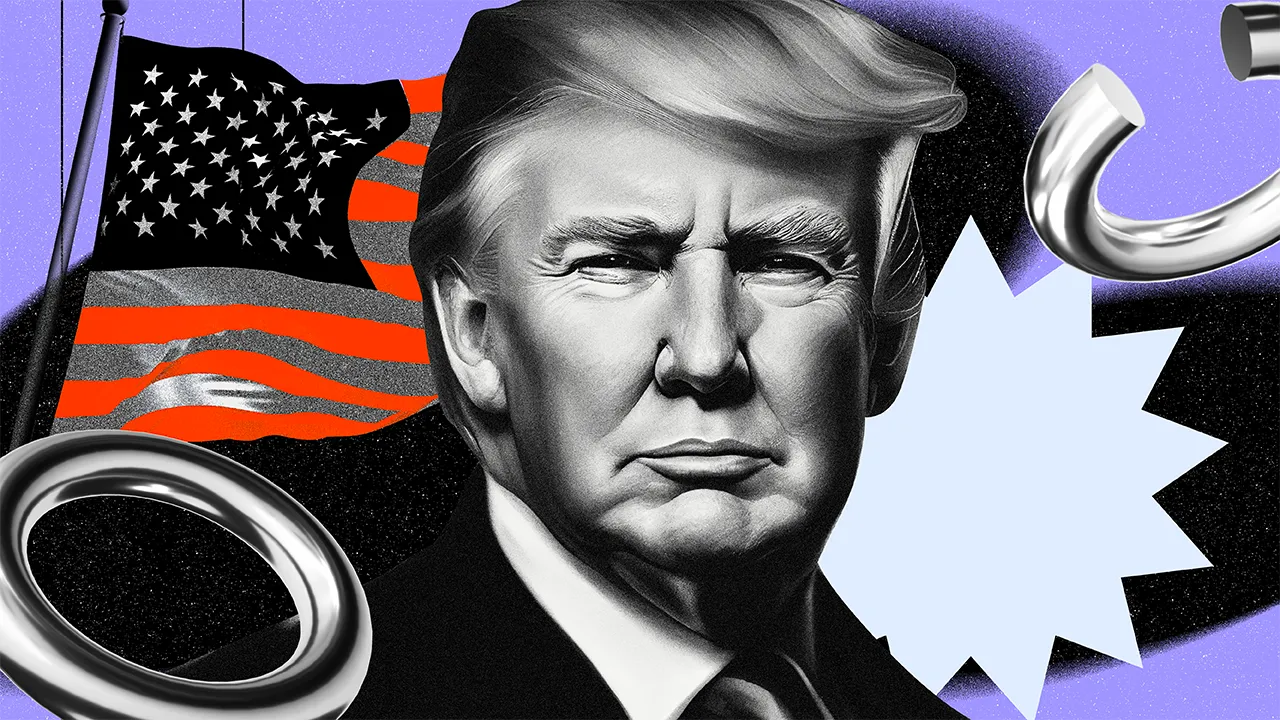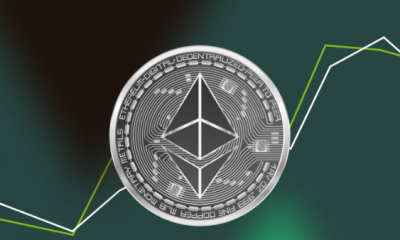Bitcoin
The Future of Decentralized Lending?

According to the World Bank, 1.4 billion adults around the world remain unbanked. The global financial system, despite its unbelievably vast infrastructure, falls short of serving the global population equitably on many counts.
For many, the glittering promise of financial freedom is not merely a matter of surviving the rat race but also a tale of inflation and documentation.
Bitcoin-Backed Credit: A Lifeline for the Unbanked Globally
Millions of people remain underbanked or entirely unbanked due to strict credit requirements, high fees, and limited accessibility. From Palestinian refugees with no proof of citizenship, single women with no employment contract in Egypt, or the countless people facing exorbitant inflation rates of over 120% in Argentina.
During the 2008 financial crisis, countless individuals in the US lost their homes due to predatory lending practices, showcasing the system’s inherent vulnerabilities. Even today, high inflation erodes savings in fiat currencies, leaving consumers with fewer options to preserve their wealth.
Meanwhile, small businesses worldwide face rejection from banks due to rigid creditworthiness standards. One may even argue that money is perhaps the most violent political tool in the weaponry bag of the powers that be.
This gap in accessibility and fairness reveals the need for alternative financial systems. Bitcoin-backed credit offers a viable solution, overcoming both the political agendas and the economic limitations that keep poor people poor.
What Are Bitcoin-Backed Credit Systems?
Bitcoin-backed credit systems allow borrowers to use their BTC holdings as collateral to secure loans without selling their assets. These systems function similarly to secured loans, where a borrower pledges an asset to access liquidity.
If the borrower fails to repay, the lender liquidates the collateral to recover the funds. Unlike traditional loans, these systems do not require credit scores or extensive documentation, making them more accessible to crypto holders.
“High inflation, currency devaluation, and low trust in centralized banks could drive demand for Bitcoin-backed loans. Bitcoin’s stability and decentralized nature make it attractive in volatile economies, and DeFi platforms offer lower barriers and better terms compared to traditional lending,” Kevin Charles, co-founder of The Open Bitcoin Credit Protocol told BeInCrypto in an interview.
The market for Bitcoin-backed credit has grown, with key players like BlockFi, Ledn, Celsius, and Nexo leading the way. These platforms allow users to retain exposure to BTC while accessing fiat or stablecoin liquidity. The simplicity and appeal of these systems have fueled their adoption in recent years, one reason why they have faired peacefully throughout bear markets.
One major advantage of BTC-backed credit is the ability to retain exposure to Bitcoin’s price appreciation. Borrowers can unlock liquidity without selling their BTC, allowing them to benefit from potential long-term gains.
Additionally, Bitcoin-backed loans act as a hedge against inflation by offering an alternative to the ever-devaluing fiat currencies. A crypto holder in Argentina, for example, would be able to secure themselves against their dwindling national currency and even make extra cash.
According to Bankrate, USD now has an inflation rate of 2.4%, which is notably the lowest it has been since February 2021. Meanwhile, BTC has an inflation rate of just 1.7%.

BTC-backed systems also promote financial accessibility. Unlike traditional banks, which require stringent credit checks, Bitcoin-backed credit platforms primarily assess the value of the collateral. This approach opens the door to individuals in regions with limited banking infrastructure, offering a lifeline to the unbanked.
For those who hold true to the ethos of decentralization, global inclusion is the real selling point. Bitcoin-backed credit has the potential to provide financial services to these populations, bridging the gap left by traditional systems. Central banks and global financial institutions remain privy to the whims and shifts of the ever-changing political playground.
In a nation like Lebanon, whose residents primarily transact in USD due to its effectively dead LBP, citizens were barred from withdrawing their own dollars when the central bank faced a dollar shortage crisis. For reference, one USD equals 89,550 LBP. In neighboring Egypt, rumors of impounded USD accounts also began circulating before being denied by central bank officials.
“Bitcoin-backed credit operates on a global, decentralized network, meaning access is not dependent on income, location, or credit history. By using Bitcoin as collateral, anyone holding the asset can access loans without traditional gatekeepers. Early DeFi platforms show increasing adoption in regions with limited banking access, highlighting the potential for financial inclusion,” Charles added.
However, even with all of these advantages, duality is the law of the universe. Bitcoin-backed credit systems are no cure-all solution; they carry significant risks.
The most glaring is Bitcoin’s price volatility. A sudden drop in BTC’s value can trigger margin calls, forcing borrowers to either add collateral or face liquidation. During the crypto market crash in 2022, countless borrowers lost their collateral as prices plummeted. According to Charles, there are ways to mitigate volatility.
“Volatility is managed through over-collateralization and automated liquidations. By requiring more collateral than the loan value, platforms create a buffer against price drops. Additionally, real-time monitoring ensures loans are adjusted to market conditions, maintaining stability even during price crashes,” Charles added.
The Three-Eyed Trojan Horse: Centralization’s Re-emergence
Even so, Bitcoin-backed credit systems have socio-economic implications that warrant examination. The first is that while these platforms democratize access to credit for crypto holders, they risk creating new financial gatekeepers. Wealthy crypto investors, or “crypto whales,” stand to benefit the most, while average users with limited holdings may find themselves excluded.
Whales, or addresses holding more than 100,000 BTC, hold 21% of the total Bitcoin supply. This dynamic means perpetuating wealth concentration within the crypto space as well. If that does happen, we can wave goodbye to the promise of inclusion.

The second concern is traditional financial institutions. They are increasingly infiltrating the Bitcoin-backed credit market through acquisitions and regulatory influence.
Banks like Goldman Sachs and JPMorgan have begun exploring crypto-backed lending, signaling a convergence of decentralized and traditional finance. In November, Bloomberg reported that Goldman Sachs is preparing to launch a new company focused on digital assets. While these developments bring legitimacy, they also raise concerns about co-opting Bitcoin’s decentralized ethos.
Then enters the third and final Trojan horse: government oversight. It presents both opportunities and challenges for Bitcoin-backed credit systems.
Regulation can legitimize these platforms, ensuring consumer protection and stability. However, excessive regulation could stifle innovation and compromise decentralization.
For example, the European Union’s MiCA framework has introduced clarity but also imposed stringent compliance requirements, causing friction within the crypto industry. Binance, the world’s largest crypto exchange by trading volume, had to disable copy trading services for its European users in June after MiCA was announced.
Another issue that may impact accessibility is know-your-customer (KYC) standards, which may hinder those who rely on crypto wallets because they lack sufficient personal documentation. Policymakers often argue that platforms without strict KYC oversight risk assisting criminals in money laundering operations. In 2023, Turkiye even rolled out a new set of crypto laws aimed at tightening up KYC standards.
“We’re witnessing a re-centralization of a system designed to be free. The challenge is finding balance without diluting Bitcoin’s core principles,” Charles posed.
Platforms like Aave and Sovryn exemplify decentralized approaches to Bitcoin-backed credit. These systems rely on smart contracts to automate transactions, reducing the need for intermediaries and ensuring transparency. However, decentralization comes with its own challenges, including scalability, security vulnerabilities, and regulatory gray areas.
Still, success stories exist. Borrowers have used Bitcoin-backed loans to fund businesses, pay medical bills, or navigate economic uncertainty without selling their BTC. Conversely, others have faced significant losses due to liquidation during market downturns, highlighting the high stakes of these systems.
In conclusion, Bitcoin-backed credit represents both a financial revolution and a cautionary tale. Its future hinges on its ability to scale, remain accessible and adhere to Bitcoin’s ethos of decentralization.
As traditional finance enters the space and regulatory frameworks evolve, the challenge will be maintaining the balance between innovation and inclusivity. Whether these systems democratize finance or merely shift the gatekeeping remains to be seen.
Disclaimer
Following the Trust Project guidelines, this feature article presents opinions and perspectives from industry experts or individuals. BeInCrypto is dedicated to transparent reporting, but the views expressed in this article do not necessarily reflect those of BeInCrypto or its staff. Readers should verify information independently and consult with a professional before making decisions based on this content. Please note that our Terms and Conditions, Privacy Policy, and Disclaimers have been updated.
Bitcoin
Strategic Bitcoin Reserve Proposed by Brazil’s VP Advisor


Brazil’s Vice President Geraldo Alckmin’s (PSB) chief of staff, Pedro Giocondo Guerra, underscored on Wednesday the importance of establishing a national strategic Bitcoin reserve. Guerra was speaking at the swearing-in ceremony of the new president of the FPBC (Parliamentary Front for Competitive Brazil), Deputy Júlio Lopes (PP-RJ), while representing the government of President Luiz Inácio Lula da Silva (PT).
“Rigorously debating the constitution of a sovereign reserve of bitcoin value is in the public interest and will be decisive for our prosperity. After all, Bitcoin is digital gold, the gold of the internet. It’s a technology that allows us to transmit wealth from one end of the planet to the other quickly and store the fruits of our labor efficiently and securely,” Guerra stated.
Will Brazil Get A Strategic Bitcoin Reserve?
His remarks highlighted Bitcoin’s intrinsic appeal—particularly its digital scarcity and deflationary design, in contrast to fiat currencies that can be printed at will. Guerra noted that an official BTC reserve might bolster the country’s resilience and adaptability, especially amid global economic and geopolitical fluctuations.
Notably, Congressman Eros Biondini (PL-MG) has introduced PL 4501/2024, which would permit the creation of a Sovereign Strategic Reserve of Bitcoins—referred to in the bill as RESBit. According to Biondini, the primary goal is to guard Brazil against currency fluctuations and geopolitical uncertainties by diversifying the government’s international reserves.
The text proposes a limit of 5% of the country’s international reserves—which totaled $366 billion in December—for Bitcoin acquisitions. Should it pass, Brazil would be authorized to invest as much as $18.3 billion in Bitcoin, based on the reserve’s valuation at the time the bill was drafted.
Currently under review by Rapporteur Luiz Gastão (PSD-CE) in the Lower House’s Economic Development Committee, the bill sets forth guidelines for gradual acquisition and emphasizes robust security measures, using cold wallets and advanced AI- and blockchain-based monitoring.
The legislation details how the Central Bank and the Ministry of Finance would jointly manage RESBit, ensuring transparency through regular biannual reports to both the public and Congress. In addition, the text addresses the need for educational and innovation programs, including specialized courses on blockchain, crypto-economics, and cybersecurity, as well as incentives like tax benefits for crypto-related startups.
Related Reading: Trump Endorses Pro-Bitcoin Senator Lummis: ‘Make US The Crypto Capital’
A technical advisory committee composed of experts in blockchain, digital economy, and cybersecurity would also be established to ensure rigorous oversight and to foster collaboration with international regulators and research institutions. The proposal cites global precedents, such as El Salvador’s adoption of Bitcoin as legal tender, the United States’ approval of BTC ETFs, China’s investment in blockchain and digital currency efforts, Dubai’s success in developing a blockchain-friendly business environment, and the EU’s regulatory framework for digital assets.
In its justification section, the bill argues that Brazil is already one of the countries with the highest rate of cryptocurrency adoption, yet government policy has not kept pace with the rapid evolution of this market.
According to the text, “The creation of RESBit will allow Brazil to diversify its international reserves, reducing exposure to foreign exchange fluctuations and geopolitical risks while increasing economic resilience. This measure will also position Brazil as a regional leader in financial and technological innovation, attracting external investment and strengthening our presence in the digital economy.”
At press time, BTC traded at $86,205.

Featured image created with DALL.E, chart from TradingView.com

Editorial Process for bitcoinist is centered on delivering thoroughly researched, accurate, and unbiased content. We uphold strict sourcing standards, and each page undergoes diligent review by our team of top technology experts and seasoned editors. This process ensures the integrity, relevance, and value of our content for our readers.
Bitcoin
Bitcoin Bet Grows Bigger: The Blockchain Group Snaps Up 580 BTC
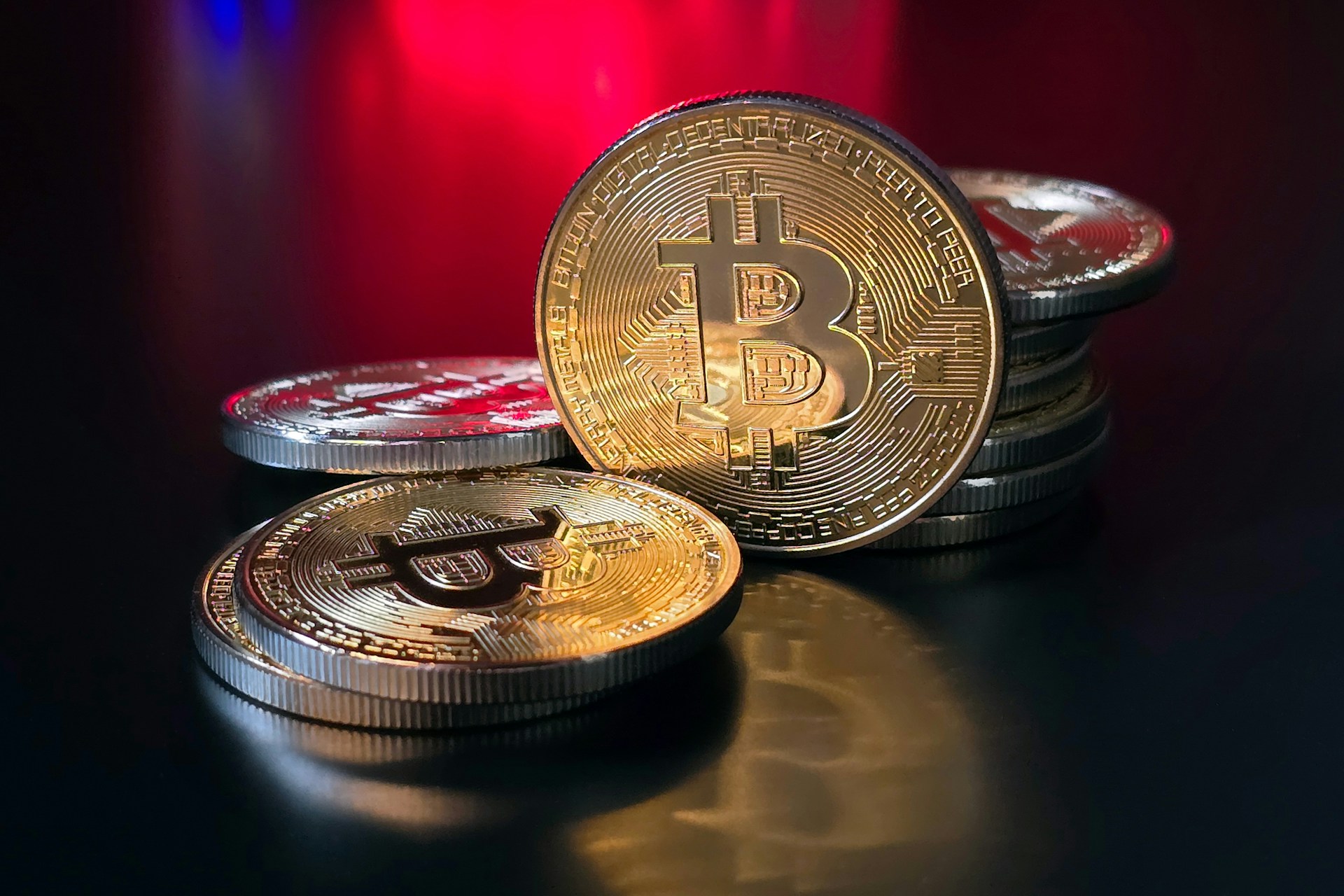

The Blockchain Group, a France-based blockchain solutions firm, recently announced its largest Bitcoin (BTC) purchase to date, acquiring 580 BTC. This marks the company’s third BTC acquisition since it began buying the digital asset in November 2024.
The Blockchain Group Buys 580 Bitcoin
In its most significant BTC acquisition so far, The Blockchain Group has purchased 580 BTC for approximately $50.64 million at an average price of $88,020 per coin. According to the announcement, the purchase was made through its Luxembourg-based subsidiary.
Notably, the acquisition was financed through proceeds raised from a convertible bond issuance announced on March 6. The move aligns with the firm’s Bitcoin Treasury strategy.
To recall, The Blockchain Group made its first BTC purchase in November 2024, acquiring 15 BTC at an average cost of $68,785 per coin. Its second purchase followed in December 2024, when it bought 25 BTC at an average price of roughly $97,692.
Following its latest acquisition, the company’s total BTC holdings now stand at 620 BTC, with a total net asset value of slightly over $54 million at current market prices.
According to data from Yahoo! Finance, The Blockchain Group’s stock (ALTBG.PA) closed today’s trading session at €0.4975 ($0.54), up 3.09% on the day. On a year-to-date basis, the company’s shares have surged by an impressive 65.78%, suggesting that its exposure to BTC has positively impacted its valuation.

The Blockchain Group’s official website states that its pivot to Bitcoin is part of a broader strategy to optimize the use of its excess cash and financial instruments. Since its first BTC acquisition, the company’s stock has risen by 225%.
Corporate BTC Adoption To Grow In 2025
Corporate adoption of Bitcoin is expected to pick up even further in 2025, driven not only by the digital asset’s intrinsic value but also by a favorable regulatory environment under pro-crypto US President Donald Trump’s administration.
Earlier this week, the largest corporate holder of Bitcoin, Strategy, acquired an additional 6,911 coins, pushing its total holdings beyond 500,000 BTC. In the same vein, US-based financial services firm Fold Holdings announced the addition of 475 BTC to its corporate treasury earlier this month.
As corporate adoption grows, several US states have also begun legislative processes to add BTC to their treasuries. For instance, Utah and Kentucky have recently made significant strides with their BTC reserve bills.
Additionally, Mexican billionaire Ricardo Salinas recently revealed that close to 70% of his investment portfolio is allocated to Bitcoin and related assets. At press time, BTC trades at $86,838, down 1.1% in the last 24 hours.

Featured Image from Unsplash.com, charts from Yahoo! Finance and TradingView.com

Editorial Process for bitcoinist is centered on delivering thoroughly researched, accurate, and unbiased content. We uphold strict sourcing standards, and each page undergoes diligent review by our team of top technology experts and seasoned editors. This process ensures the integrity, relevance, and value of our content for our readers.
Bitcoin
Will Bitcoin’s Rally Continue or Just Be a Temporary Surge?
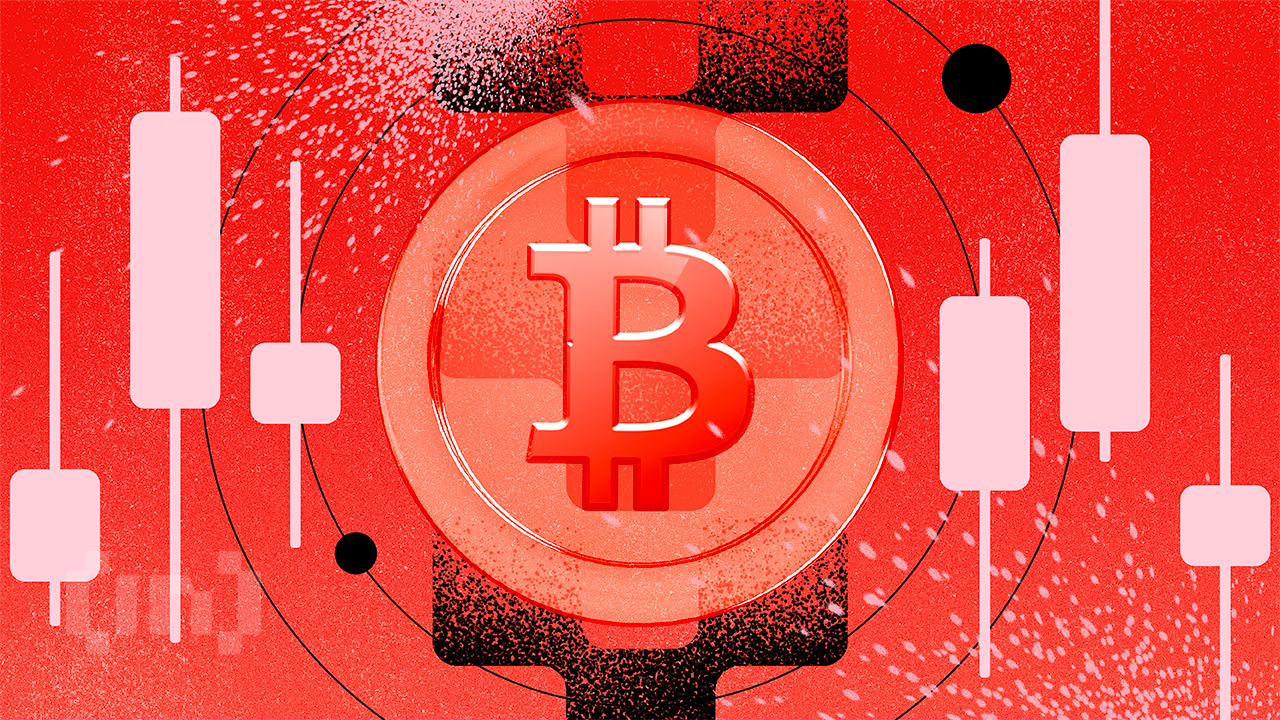
Bitcoin (BTC) has shown signs of a relief rally this week, offering a glimmer of hope to investors after the recent market downturn.
Despite this brief uptick, analysts are warning that the upward momentum may not last long.
Will Bitcoin’s Rally Last?
According to data from BeInCrypto, Bitcoin’s price has recovered by 2.0% over the past week. The gains have more than doubled over the fortnight, with the coin appreciating by 5.0%. At the time of writing, the largest cryptocurrency traded at $87,381, representing a slight 0.1% dip over the past day.

Spot Bitcoin exchange-traded funds (ETFs) have also seen inflows for nine consecutive days, according to data from SoSo Value. Since last Friday, the ETFs have collectively attracted $944 million in inflows.
This sustained interest suggests growing confidence among institutional investors. Yet, analysts are unconvinced of the rally’s potential.
In its latest Cryptocurrency Compass newsletter, research firm Fairlead Strategies predicted that Bitcoin’s relief rally could persist for another one to two weeks. However, founder Katie Stockton warned that a price drop may follow.
“Intermediate-term momentum is to downside, and the weekly stochastics are not yet oversold, increasing risk that the rebound is fleeting. We expect the same for most risk assets,” she wrote.
Despite the bearish outlook, Stockton acknowledged short-term positives. Bitcoin’s near-term momentum has improved, and the price still has room to rise before hitting overbought territory. Nonetheless, she cautioned that this window may close by month’s end.
This could potentially trigger a phase of consolidation—or “digestion.” This means that Bitcoin’s upward momentum might slow down or pause for a longer period as the market adjusts and absorbs the recent gains.
Another analyst also shared a cautious outlook. In a recent post on X (formerly Twitter), Koroush AK estimated Bitcoin’s potential price movements using a liquidation heatmap.
He noted that there’s significant selling pressure around $89,000 (major supply) and buying interest around $85,000 (demand).
“The idea of a HTF dead cat bounce is still valid if price reverts at the highs around the ≈$90K key zone,” he wrote.

For context, a “dead cat bounce” refers to a temporary recovery or brief upward movement in the price of an asset after a prolonged downtrend. This is followed by a continuation of the downtrend. However, he added that the bearish scenario would be nullified if Bitcoin manages to break past the resistance level.
Meanwhile, changing macroeconomic conditions are also a growing concern, particularly with US President Donald Trump’s tariff announcements scheduled for April 2. In their recent report, K33 Research stressed that although markets are currently stable, the upcoming tariff decisions could trigger considerable volatility in the market.
“Tariffs remain the primary producer of market-moving headlines, rendering most traders risk-averse as we approach a big day of tariff announcements on April 2,” the report read.
The report further advised caution and recommended avoiding leverage due to the anticipated tariff-induced volatility.
Recently, BeInCrypto also explored how Trump’s tariff plans might impact crypto markets. High tariffs could pressure risk assets like Bitcoin, potentially mirroring the market’s reaction in February. Conversely, if tariffs are delayed or applied selectively, investor fears may ease. This, in turn, could lead to a potential recovery in crypto prices.
Disclaimer
In adherence to the Trust Project guidelines, BeInCrypto is committed to unbiased, transparent reporting. This news article aims to provide accurate, timely information. However, readers are advised to verify facts independently and consult with a professional before making any decisions based on this content. Please note that our Terms and Conditions, Privacy Policy, and Disclaimers have been updated.
-

 Altcoin22 hours ago
Altcoin22 hours agoDogecoin Cup And Handle Pattern Signals Recovery To $0.4, Here’s How
-
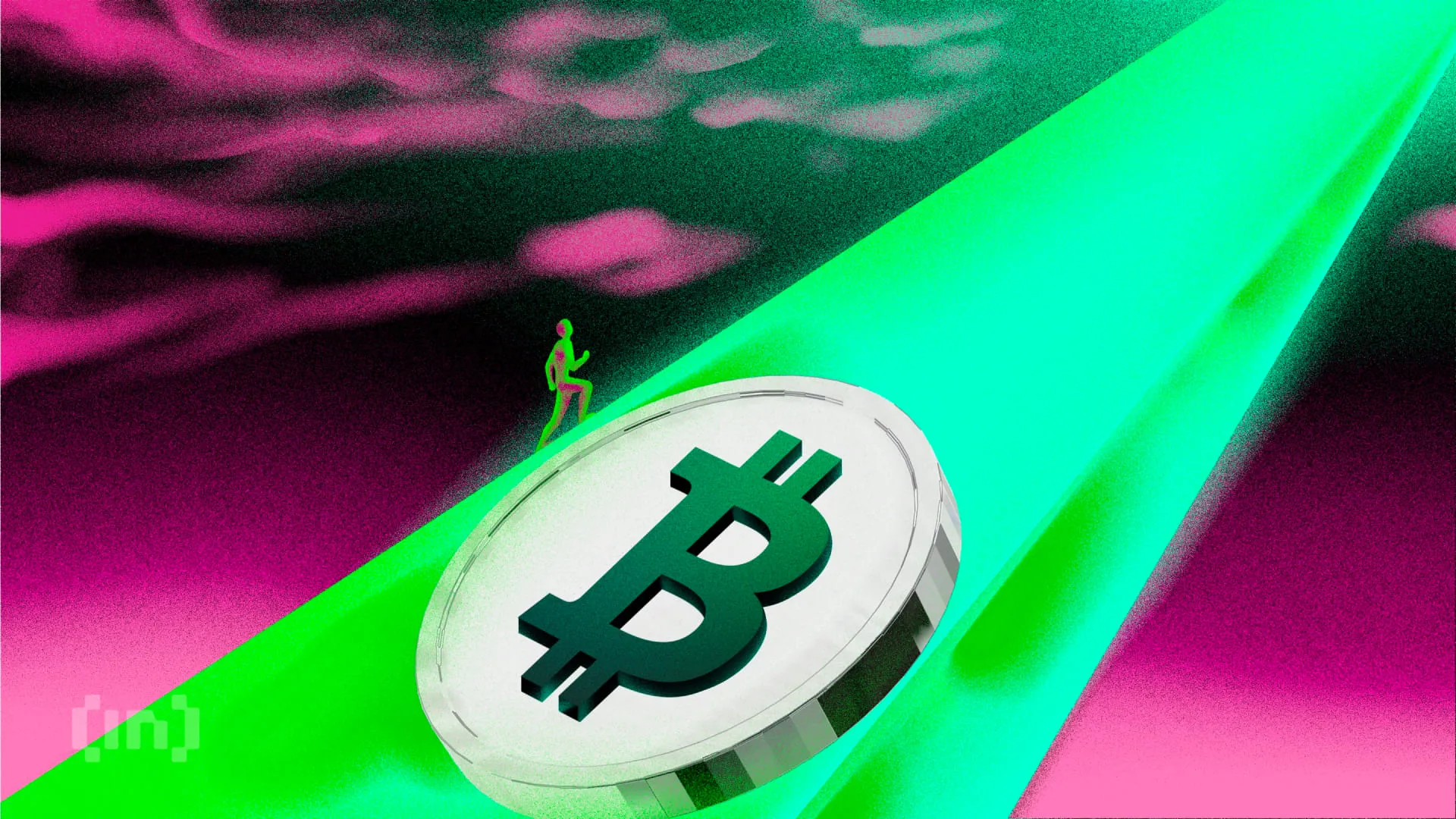
 Market21 hours ago
Market21 hours agoWhy BTC Price Stayed Unchanged
-

 Market20 hours ago
Market20 hours agoBitcoin Price Stalls at $88K—Can Bulls Overcome Key Resistance?
-

 Market24 hours ago
Market24 hours agoOnyxcoin (XCN) Nears Oversold After a 30% Monthly Drop
-
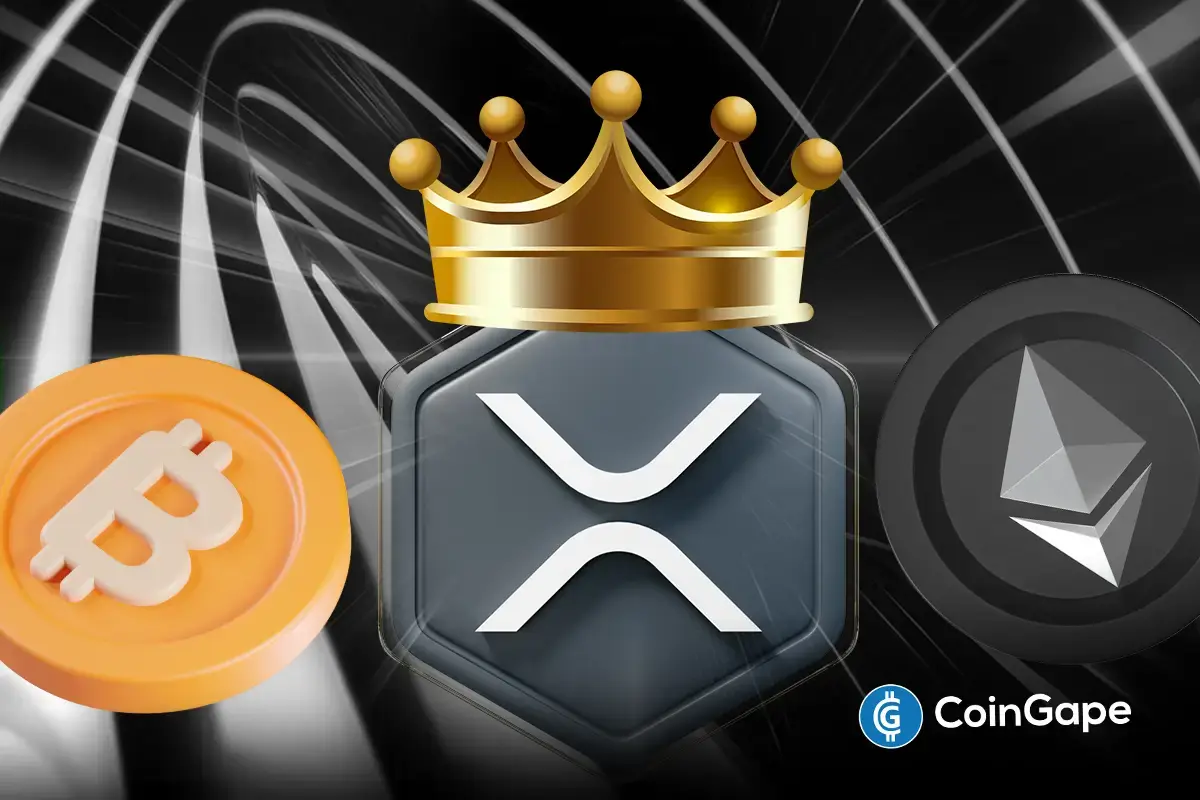
 Altcoin24 hours ago
Altcoin24 hours agoAnalyst Reveals Why The XRP Price Will Dominate Bitcoin & Ethereum
-

 Bitcoin23 hours ago
Bitcoin23 hours agoBitcoin Bet Grows Bigger: The Blockchain Group Snaps Up 580 BTC
-

 Market23 hours ago
Market23 hours agoHyperLiquid Responds to JELLY Crisis Amid Community Backlash
-

 Market22 hours ago
Market22 hours agoBinance Alpha Lists Ghibli Meme Coins Amid ChatGPT Hype


